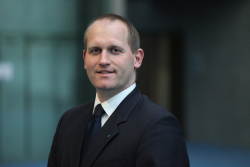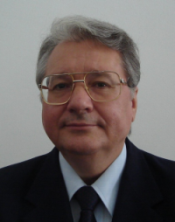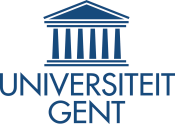|
|
|
Keynote Speakers
Simulation in the boardroom : industrial footprint optimization
|
|
Prof. Hendrik Vanmaele (Bruges, 1970) is Chief Executive Officer for MOBIUS, a consulting company with over 60 consultants specialized in Business Process Management and Supply Chain Management. Next to this, he is part-time professor at the Universiteit Gent and The Vlerick Leuven Gent Management School. |
Hendrik Vanmaele has an engineering degree and a M.Sc in Industrial Management. He studied at the Cornell University (USA) and obtained a Ph.D. in Industrial Management.
As a professional consultant, Prof. Vanmaele is involved with several companies and public organizations for the modeling, analysis and redesign of business processes.
As an academic, Prof. Vanmaele is specialized in the application of simulation and optimization techniques supporting analysis and redesign exercises.
He is the author of many national and international publication on Supply Chain Management and Business Process Management.
Abstract
Globalizing economy, shifting buying power, changing consumption patterns : these are just some of the elements that force many industries to revise their industrial footprint. This involves important decisions such as opening and closing production and logistics facilities, adapting commercial policies to local constraints, changing transportation modes etc... Scenario simulation is one of the few techniques that can handle the immense complexity involved in this decision process.
This contribution will first introduce the problem setting and provide an overview of the elements to be taken into account. Then, we will focus on the use of simulation and how to apply different types of simulation to the footprint optimization problem. Finally, a few examples will be discussed.
Knowledge Simulation and Return on Education in the Logistics Industry

|
Prof. Dr. Matthias Klumpp |
Abstract
With 2.8 million employees the logistics industry is the third largest in Germany. Challenged with increasing technology and sustainability requirements, especially the knowledge base of these employees is crucial for further success and value creation in this special industry. The contributions outlines simulation concepts based on a 2012 field survey regarding competences of 1.068 employees in the German logistics industry. This enables companies within the industry also to calculated a prognosis regarding possible returns of education with specific education measures as e .g. trainings and study programs for their employees.
Curriculum Vitae
Matthias Klumpp studied economics and business administration after a vocational degree in logistics (Speditionskaufmann IHK, 1996) at University Leipzig and the IECS Strasbourg from 1995 to 1998 (Diplom-Kaufmann, Diplom-Volkswirt). Parallel to his professional consultant career in strategy management, logistics and education (zeb/, conoscope) he also obtained a PhD at University Leipzig in 2007 and started as a professor at FOM University of Applied Sciences. He founded the Institute for Logistics and Service Management (ild) at FOM in 2009 and leads this institute as scientific director. He is member of the scientific committee for the German national excellence cluster LogistikRuhr funded by the German ministry for research (www.effizienzcluster.de).
Simulation of the Redundant Electrohydraulic Control Systems

|
Professor Nicolae Vasiliu |
Abstract
The author presents the state of the art in the field of the redundant electro hydraulic control systems, and describes an original procedure of implementing it in controlling the hydropower unit's speed. A practical application was designed by his research team for controlling the electro hydraulic servomechanisms of the KAPLAN turbines. The practical target of the research was to increase of the reliability level of a patented system, successfully implemented during the refurbishing of a medium power hydro power station. The author presents also an original procedure for the real time simulation of the global reliability of the industrial process involving electro hydraulic control systems. The developed algorithm can be implemented on any digital real time controller, and the co-simulation procedure can be implemented on any equivalent hardware
Biography
Prof. Nicolae Vasiliu (Buzau 1946) is Director of the Fluid Power Laboratory of the University POLITEHNICA of Bucharest. He graduated in Hydropower Engineering in 1969, and became a Ph.D. in Fluid Mechanics after a research stage at Ghent University and the Von Karman Institute in Brussels. Being a state professor since 1994, he has always worked for industry, as a project manager or scientific advisor.
In 1980 he joined the Hydraulic Control Team from the Romanian Aerospace Institute. There he has been working mainly in modeling, simulation, dynamic identification, remote control, and virtual instrumentation of the hydraulic and electro-hydraulic control systems.
Some highlights of his career include: manager, from 1996, of the ENERGY & ENVIRONMENT RESEARCH CENTRE from University POLITEHNICA of Bucharest; director of the ROMANIAN INNOVATION FINANCING AGENCY between 2006 and 2010. He currently serves as Romanian Chairman of the FLUID POWER NET INTERNATIONAL.
He has received many awards for achievements in research, education and leadership. Some of his patents gained international awards in Geneva, Brussels, Moscow and Warsaw, and were successfully applied.




 Email:
Email: 








